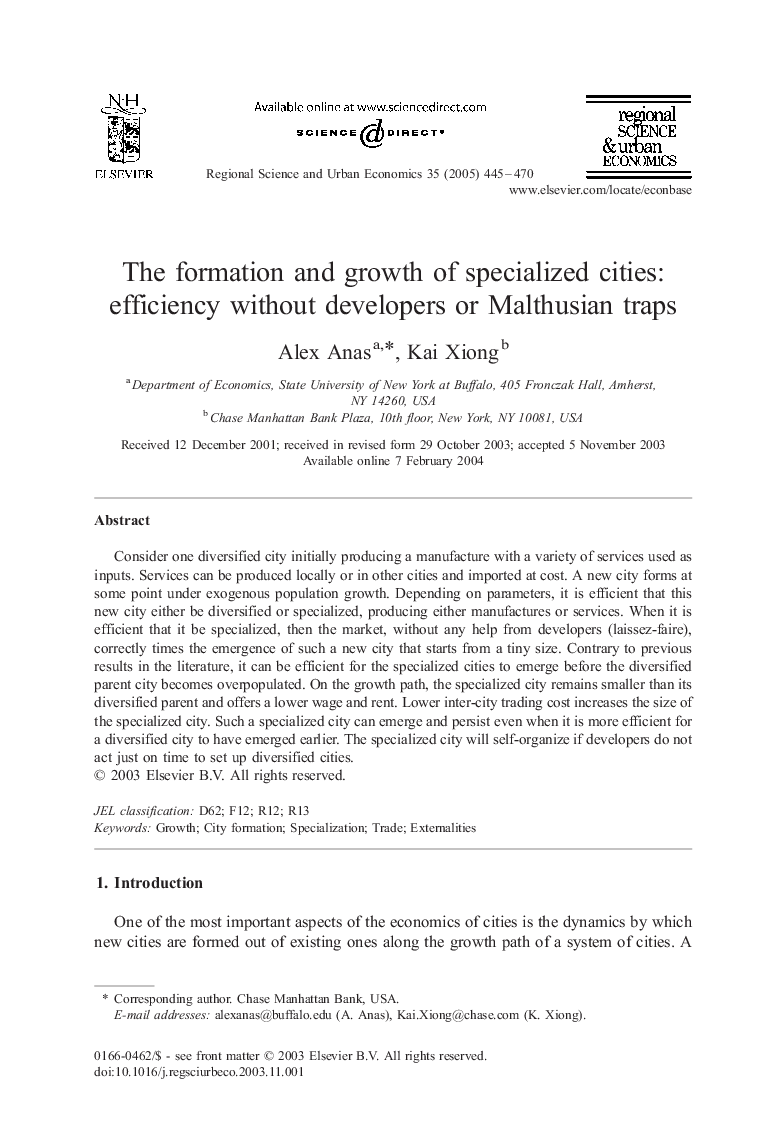| Article ID | Journal | Published Year | Pages | File Type |
|---|---|---|---|---|
| 10482615 | Regional Science and Urban Economics | 2005 | 26 Pages |
Abstract
Consider one diversified city initially producing a manufacture with a variety of services used as inputs. Services can be produced locally or in other cities and imported at cost. A new city forms at some point under exogenous population growth. Depending on parameters, it is efficient that this new city either be diversified or specialized, producing either manufactures or services. When it is efficient that it be specialized, then the market, without any help from developers (laissez-faire), correctly times the emergence of such a new city that starts from a tiny size. Contrary to previous results in the literature, it can be efficient for the specialized cities to emerge before the diversified parent city becomes overpopulated. On the growth path, the specialized city remains smaller than its diversified parent and offers a lower wage and rent. Lower inter-city trading cost increases the size of the specialized city. Such a specialized city can emerge and persist even when it is more efficient for a diversified city to have emerged earlier. The specialized city will self-organize if developers do not act just on time to set up diversified cities.
Related Topics
Social Sciences and Humanities
Economics, Econometrics and Finance
Economics and Econometrics
Authors
Alex Anas, Kai Xiong,
